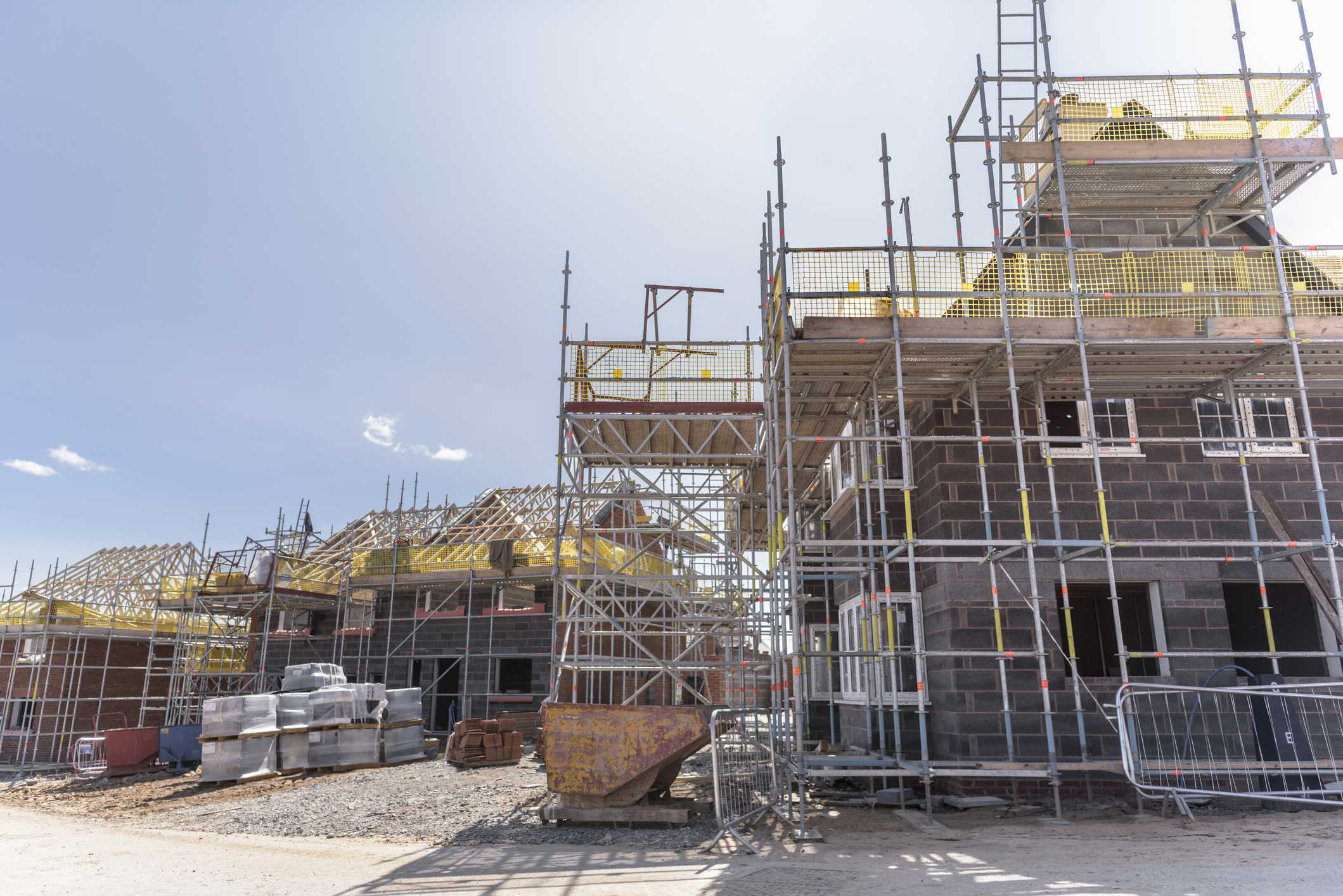Get the latest financial news, insights and expert analysis from our award-winning MoneyWeek team, to help you understand what really matters when it comes to your finances.
You are now subscribed
Your newsletter sign-up was successful
Want to add more newsletters?

Twice daily
MoneyWeek
Get the latest financial news, insights and expert analysis from our award-winning MoneyWeek team, to help you understand what really matters when it comes to your finances.

Four times a week
Look After My Bills
Sign up to our free money-saving newsletter, filled with the latest news and expert advice to help you find the best tips and deals for managing your bills. Start saving today!

First-time buyers who purchased their homes using the government's help-to-buy scheme could find themselves short of options when they decide to remortgage. Borrowers with help-to-buy equity loans cannot access the cheapest deals on the market because they are limited to specialised help-to-buy mortgages. Several prominent mortgage brokers have raised concerns about the lack of products currently available for this sector of the market.
The help-to-buy equity loan scheme launched in April 2013, offering buyers with a 5% deposit a 20% equity loan from the government if they bought a new-build property, with the remaining 75% of the purchase price funded by a help-to-buy mortgage. The first wave of these borrowers is now coming to the end of the initial fixed-rate mortgage and finding that, although about 20 lenders sell help-to-buy mortgages, only a quarter of them offer remortgage deals.
Very few lenders offer a "free legals" package for help-to-buy remortgages (whereby the provider covers your legal fees), making the transaction even more expensive. Some offer a free valuation and an element of cashback, but this is usually about £250 far less than the cost of a help-to-buy remortgage transaction. "In a lot of cases borrowers can find themselves to be mortgage prisoners due to cost and lack of alternative choices," says Helen Pierson of the broker Mortgage Bureau. As well as grappling with higher costs, borrowers could find that their remortgage takes longer than usual.
MoneyWeek
Subscribe to MoneyWeek today and get your first six magazine issues absolutely FREE

Sign up to Money Morning
Don't miss the latest investment and personal finances news, market analysis, plus money-saving tips with our free twice-daily newsletter
Don't miss the latest investment and personal finances news, market analysis, plus money-saving tips with our free twice-daily newsletter
Financial services software firm Target is responsible for administering help-to-buy loans, but it can take up to two months for it to release documents crucial to a remortgage deal. Buyers wanting to repay some of their equity loan have experienced the worst delays.
The main hurdle here is that the equity loan provider and the mortgage lender need to value the property, says Jonathan Harris of the mortgage broker Anderson Harris. "As the equity loan is a percentage of the property value and not a fixed amount, they need to carry out their own valuations to determine how much is required to be paid back. Both valuations need to match each other and are carried out by different surveyors."
The other option for help-to-buy borrowers looking for a better mortgage rate is to ask for a "product transfer" through their existing lender. "Most, if not all, lenders who have offered mortgages in conjunction with the help-to-buy [equity loan scheme] will offer a product transfer and so there should be no need for borrowers to revert to their lender's standard variable rate," says Ray Boulger of the mortgage broker John Charcol.
But borrowers who transfer products miss out on important independent advice from brokers, says Pierson. "This is usually an execution-only' transaction ie, no advice on the suitability of the product chosen, no advice on the equity loan element and no Financial Ombudsman recourse as the sale is non-advised," she warns.
Most help-to-buy borrowers would benefit from advice on whether to keep the loan, or repay some or all of it. The loan is interest-free for five years, but from year six the borrower is charged 1.75% of the loan's value. This increases every year in line withthe retail price index, plus 1%. Those who have used help-to-buy and who have since benefited froma change in circumstances may therefore decide that it is in their best interests to buy out the loan sooner rather than later.
The loan will be repayable at the same percentage of the house's current market value as the percentage of the purchase price that was originally borrowed, typically 20%. Borrowers looking to do this should speak to their help-to-buy agent to get a more accurate idea of the amount they would need to pay.
Get the latest financial news, insights and expert analysis from our award-winning MoneyWeek team, to help you understand what really matters when it comes to your finances.
Emma Lunn is a multi-award-winning journalist who specialises in personal finance and consumer issues. With more than 18 years’ experience in personal finance, Emma has covered topics including mortgages, first-time buyers, leasehold, banking, debt, budgeting, broadband, energy, pensions and investments. Emma’s one of the most prolific freelance personal finance journalists with a back catalogue of work in newspapers such as The Guardian, The Independent, The Daily Telegraph, the Mail on Sunday and the Mirror. As a freelancer she has also completed various in-house contracts at The Guardian, The Independent, Mortgage Solutions, Orange and Moneywise.
She also writes regularly for specialist magazines and websites such as Property Hub, Mortgage Strategy and YourMoney.com. She’s particularly proud of her work writing about the leasehold sector and a Guardian front-page story about a dodgy landlord. She has a real passion for helping people learn about money – especially when many people are struggling to get by in today’s challenging economic climate – and prides herself on simplifying complex subjects.
-
 How should a good Catholic invest? Like the Vatican’s new stock index, it seems
How should a good Catholic invest? Like the Vatican’s new stock index, it seemsThe Vatican Bank has launched its first-ever stock index, championing companies that align with “Catholic principles”. But how well would it perform?
-
 The most single-friendly areas to buy a property
The most single-friendly areas to buy a propertyThere can be a single premium when it comes to getting on the property ladder but Zoopla has identified parts of the UK that remain affordable if you aren’t coupled-up
-
 Homebuilders report slumping profits as housing market stutters
Homebuilders report slumping profits as housing market stuttersPersimmon has become the latest UK homebuilder to warn on profits and completions as higher mortgage rates cool down the property market.
-
 Housing slowdown ‘deeper than anticipated’ as property sales slump
Housing slowdown ‘deeper than anticipated’ as property sales slumpNews New data from HMRC shows a fall in property sales - now experts predict a delay to the housing recovery
-
 Good news: UK house prices are stuck in the doldrums
Good news: UK house prices are stuck in the doldrumsFeatures UK house prices are set to tread water while incomes rise, making property more affordable, says Merryn Somerset Webb.
-
 Bittersweet profits for buy-to-let landlords
Bittersweet profits for buy-to-let landlordsFeatures The government’s determination to make the buy-to-let sector less appealing to investors seems to have worked, with landlords suffering a dismal few years.
-
 Some rare good news for landlords
Some rare good news for landlordsFeatures Two property-related changes you might have missed in last week's Budget, along with a rare good-news story for landlords.
-
 First-time buyers: don’t touch property crowdfunding products with a bargepole
First-time buyers: don’t touch property crowdfunding products with a bargepoleFeatures Property crowdfunding products aimed at first time buyers don’t help anyone, says Merryn Somerset Webb. They just add an extra slice of personal financial risk.

